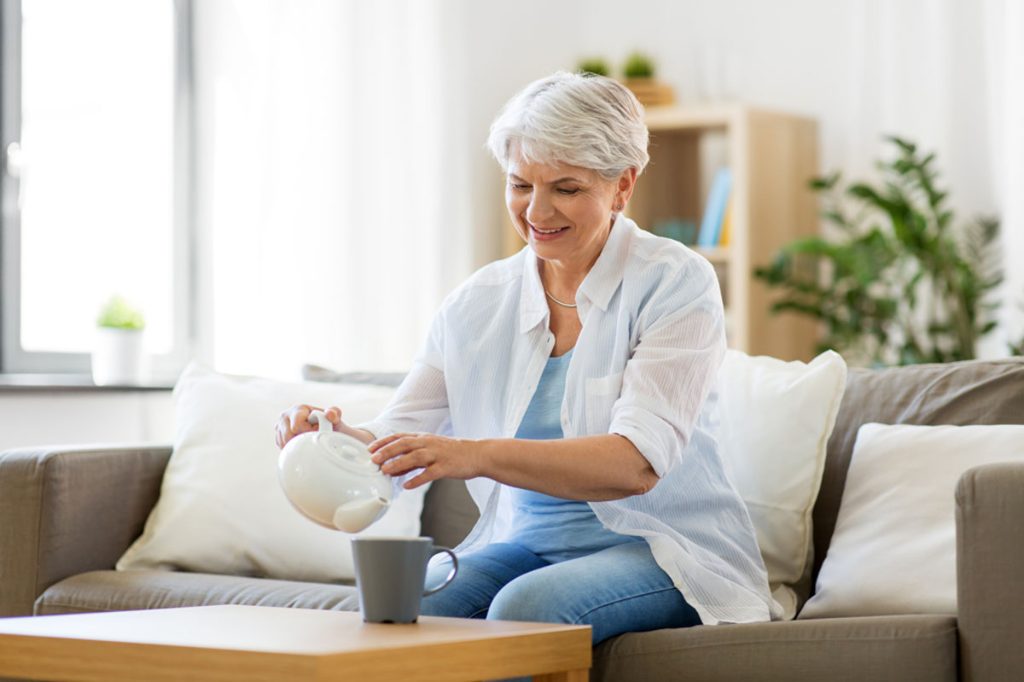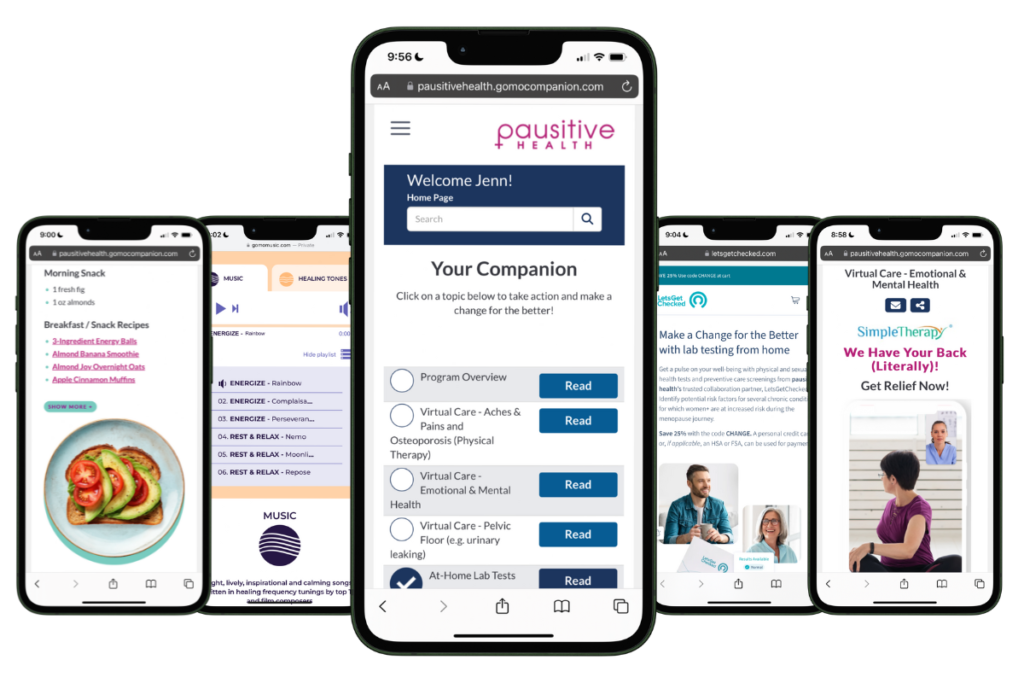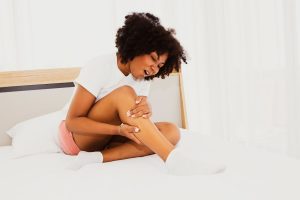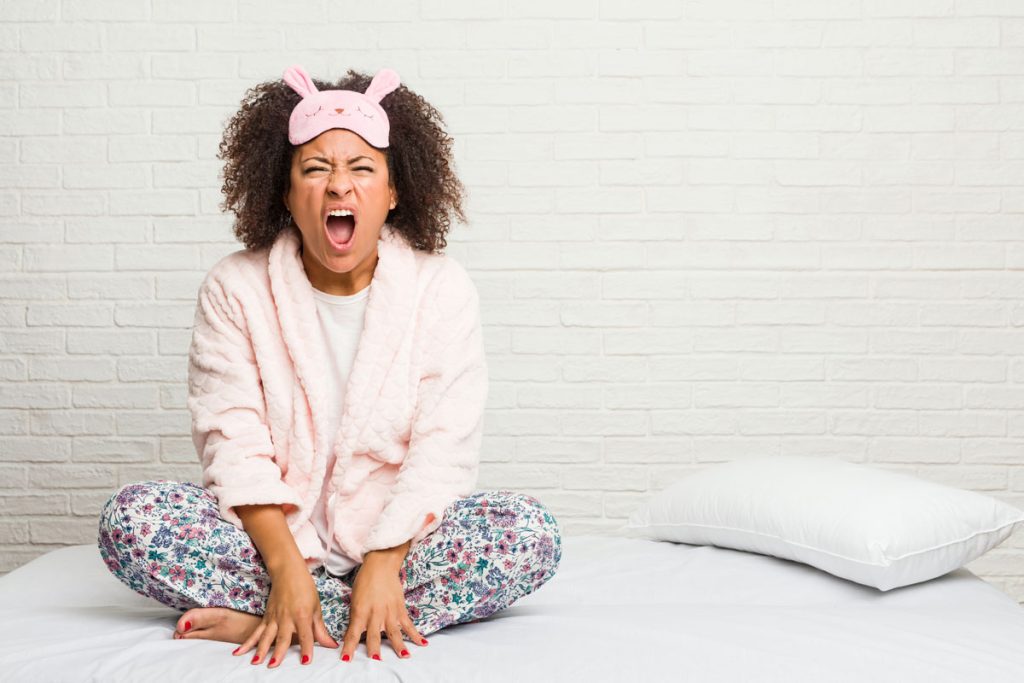Are you exhausted, yet unable to get good sleep? Misery loves company. You’re in great company at pausitive health. We understand the struggle to sleep during the menopause transition. In our menopause survey, a woman said, “It does not last forever, but makes every day and lots of sleepless nights feel like forever.” So, what can you do to get out of this miserable state that seems like it will never end? Mind-body interventions are a natural remedy to unwind and improve your sleep cycle.
Active mind-body interventions for sleep
Ready to improve your sleep?
Let’s start with active mind-body interventions and gradually slow down our bodies.
Exercise can help you sleep longer, especially moderate-to-vigorous activities. It can help you fall asleep faster and decrease the time you’re awake in the middle of the night.
76-83% of respondents who participated in light, moderate, or vigorous exercise reported good or fairly good sleep quality, according to a Sleep in America poll from the Sleep Foundation.
Among those who did not exercise, only 56% of people reported good sleep.
Aim to complete any aerobic exercise several hours before bed.

Take a walk in nature
If you’re looking for a slower-paced exercise, get outside and walk in nature. It can transform your mood and help you unwind.
Calm, positive, happy, or relaxed. Do any of those words describe how you feel after walking under a tree-lined canopy?
In Japan, it’s called “Shinrin-yoku,” or forest bathing (walking in the forest). It helps promote relaxation.
A study found participants who walked for 15 minutes in a bamboo forest experienced significantly higher alpha brain waves (the main brain wave pattern that develops when you become drowsy) than those who walked in the city.
Again, walking in nature won’t put you to sleep. However, it can help you unwind after a long day and initiate the transition to a more relaxed state.
And research has shown myriad health and well-being benefits to spending time in nature (as long as people feel safe), including lower blood pressure and stress hormone levels, enhanced immune system function, reduce nervous system arousal and anxiety, and improved mood.
Relax your body with yoga
In general, yoga boosts your alpha waves and slows down your mind and body.
A review of 15 scientific articles found positive effects on brain waves with yoga, specifically Santhi Krya yoga, which focuses on breathing and relaxation. Measurements of brain wave activity were done before, after, and at ten-day increments.
Alpha waves also increased with these mind-body interventions – breath work, meditation, and asana-based (body postures) yoga.
Yoga can put you in a relaxed state of mind and may also reduce your menopause symptoms.
Another analysis – this time of 1300 participants in 13 research studies – found yoga can reduce menopause symptoms, including those sleep-disrupting hot flashes.
Remember, you have the power to control your journey through menopause. You don’t have to suffer.
Yoga can also improve your mood.
You can do yoga during the day or even before bed if that yoga is focused on slow, relaxing movements.
Practicing Yoga Nidra for sleep
You can also try yoga nidra, which uses elements of guided imagery, mental body scans, and rhythmic breathing to help you achieve deep relaxation.
Yoga nidra means “yogic sleep.” However, you won’t actually sleep. Instead, you’ll relax your senses, body, breath, and conscious and unconscious mind.
So, how do you get started with yoga nidra?
Richard Miller is a leader in the teachings of Yoga nidra and identifies 10 steps to practicing this ancient therapy. The overall idea is to work through your thoughts and emotions, set a goal and focus on your breathing so you come away with a greater sense of awareness and healthier well-being.
You can also purchase Yoga Nidra audio sessions from Dr. Gina Sager. She’s undergone training from Jon Kabat-Zinn, often known as the “father of mindfulness.”
Tai Chi relaxation benefits
Women experienced similar effects with tai chi (sometimes called “meditation in motion”). The low-impact exercise created an alert and relaxed state among participants.
Tai chi exercises like slow-motion karate kicks, balancing on one foot, airplane wings, and deep knee bends can also promote this relaxed state.
Tai chi has also been shown to improve balance, flexibility, muscle strength, mood, and aerobic capacity as well as reduce stress and pain. Some women use it as a non-hormonal option to manage menopause symptoms.
Qigong
Qigong is another option. Qi means “breath” or “air,” and gong means “work” or “effort.”
Pronounced chee-gung, the technique focuses on breathing, postures, meditations, and guided imagery.
The low-impact nature of tai chi and qigong make them popular with older adults. Each has its own movements and postures to connect the mind and body.
A review of studies found qigong had a slight advantage over tai chi when improving sleep quality. But both proved beneficial.
Like tai chi, qigong is a non-hormonal option for managing menopause symptoms.
Meditation
How about meditation? It’s known to reduce stress and calm your mind and body. Why? Because it helps your brain produce more alpha waves and reduce beta waves—a positive step toward better sleep. (Beta waves are present when the brain is actively engaged in mental activities.)
While there are many apps to help you meditate, you only need a chair, your breath, and five minutes to get started.
Start by practicing during the day. That way, when those beta waves kick in during the middle of the night, you’ll know how to relax your mind and body because you practiced during the day.
Ready to focus on the present moment and harness the power of your breath?
Sit straight up, and slow down your breathing. Expand your belly on the inhale and relax it on the exhale.
The mind and body work in tandem and focusing on something as simple as your breath can induce relaxation.
By paying attention to your breath, you’ll know when your mind begins to wander. Bring it back to the present moment – focusing on your breath.
Then, take another deep breath. Slow your breathing. Is your mind slowing too?
Continue to focus on your breath.
Continue this exercise in a non-judgmental way. Observe. Don’t judge. Remember that, especially if your mind wanders at first. That’s normal.
Give yourself time to realize the power of your breath and the present moment.
Guided meditation
Meditation seems simple, but it may prove challenging at first, especially if you have a lot on your mind.
For extra support on your breath journey, try a guided meditation from an app like Calm. Or listen to a video.
Focus on how you feel as you breathe. Sit and observe. Do not judge. Practice.

Herbs for sleep
Many women use herbs for a variety of menopause symptoms, including sleeplessness.
Chamomile, valerian, and lavender plant extracts are the most commonly used for insomnia. However, study results are inconsistent, and sample sizes are sometimes small.
If you choose herbs and teas, these have been shown to help with sleeplessness:
- Chamomile
- Valerian
- Lavender
- Passionflower
- Green tea, decaffeinated
Chamomile can act as a mild tranquilizer and sleep-inducer. In a clinical trial with ten cardiac patients, the patients fell into a deep sleep immediately after drinking the tea.
Valerian is often promoted as a mild sedative and sleep aid, although study results are inconsistent.
Women also use valerian for hot flashes during menopause.
Passionflower is also promoted for sleep problems, along with other conditions, including menopausal symptoms and pain. But, the National Center for Complementary and Integrative Health says there is not enough evidence to suggest its effectiveness for insomnia.
Lavender is known for its sedative and hypnotic properties. In a study of college students, sleep quality (not quantity) improved when using lavender essential oil inhalation patches on their chest and sleep hygiene techniques.
Learn about the other herbal remedies that can offer relief for menopause symptoms in the pausitive health herbal guide.
Herbal teas
Many of these herbs are available as a tea.
The soothing effect of a warm beverage can calm your body, and these teas have an added herbal benefit.
The main amino acid in tea leaves, theanine, significantly decreases stress levels. So, drinking a decaffeinated version of this beverage may help lower stress which can make it hard to fall asleep or jolt you awake at night.
If you consume the herb as a tea, you may want to drink it early enough to go to the bathroom before bed. You don’t want to add your bladder as a source of sleeplessness.
Whatever you grab, make sure it’s caffeine-free.

Free Support
For Your Menopause Journey!
Only available for a limited time!
Access a one-stop menopause journey digital destination that provides personalized text messages that focus on educational topics you select and offers many other features such as a diet assessment with recommendations, solutions from collaboration partners to address menopausal aches and pains (the musculoskeletal syndrome of menopause – MSM), pelvic floor issues, virtual care, lifestyle tools, and a supportive community.
Alpha binaural beats
Finally, help your body produce those alpha waves with binaural beats. They create an “auditory illusion” experienced when your brain hears two different sounds, one in each ear.
With binaural beats, you hear two different frequencies of a tone.
Your brain processes that information, and you hear a third tone, which is the difference between the two tones.
There’s a whole science to binaural beats and a little math. But don’t worry. It’s easy to explore and you don’t need to be an expert to figure it out.
You can find videos with these beats. Unlike most videos, it’s about the auditory experience rather than the visuals. So, you’re not watching a video. Put your earbuds in or headphones on and listen to the beats in each ear.
There are specific frequencies you want to hit. If you’d like to try binaural beats, read our quick guide to tune your brain for sleep.
Relax your mind and body for a good night’s sleep
Before you reach for a sleeping pill, consider trying other options first.
Although effective for many people, sleeping pills are not meant for long-term use. And potential side effects include nightmares and hallucinations, daytime drowsiness, dizziness, memory loss, and sleepwalking.
Each has the power to help you clear your mind and calm your body.
Combined with a healthy sleep hygiene routine, mind-body interventions can help you reset your sleep cycle and set you up for success in falling asleep and falling back asleep when you wake up in the middle of the night.
Exercise and Sleep | Sleep Foundation
Editor Toussaint, Loren, Authors Hassan, Ahmad; Tao, Jiang; Li, Guo; Jiang, Mingyan; Aii, Liu; Zhihui, Jiang; Zongfang, Liu; Qibing, Chen. Effects of Walking in Bamboo Forest and City Environments on Brainwave Activity in Young Adults. Evidence-Based Complementary and Alternative Medicine 2018/02/11. https://doi.org/10.1155/2018/9653857
Ecopsychology: How Immersion in Nature Benefits Your Health | Yale School of the Environment
Desai, Radhika & Taylor, Anisha & Bhatt, Tanvi. (2015). Effects of Yoga on Brain Waves and Structural Activation: A Review. Complementary Therapies in Clinical Practice. 21. 10.1016/j.ctcp.2015.02.002.
Yoga: What You Need To Know | National Center for Complementary and Integrative Health
10 Steps of Yoga Nidra | Yoga Journal
Awakening the Heart | Gina L. Sager, MD
Field T, Diego M, Hernandez-Reif M. Tai chi/yoga effects on anxiety, heartrate, EEG and math computations. Complement Ther Clin Pract. 2010 Nov;16(4):235-8. doi: 10.1016/j.ctcp.2010.05.014. Epub 2010 Jun 29. PMID: 20920810; PMCID: PMC2950830.
The health benefits of tai chi | Harvard Medical School
Qigong | University of Minnesota
Wang X, Li P, Pan C, Dai L, Wu Y, Deng Y. The Effect of Mind-Body Therapies on Insomnia: A Systematic Review and Meta-Analysis. Evid Based Complement Alternat Med. 2019 Feb 13;2019:9359807. doi: 10.1155/2019/9359807. PMID: 30894878; PMCID: PMC6393899.
How to Manipulate Brain Waves for a Better Mental State | Thomas Jefferson University
Guadagna S, Barattini DF, Rosu S, Ferini-Strambi L. Plant Extracts for Sleep Disturbances: A Systematic Review. Evid Based Complement Alternat Med. 2020 Apr 21;2020:3792390. doi: 10.1155/2020/3792390. PMID: 32382286; PMCID: PMC7191368.
Mindful Me® Lesson 2: Sitting Meditation | Thriving with Cheryl Jones [YouTube]
Daily Calm 10 Minute Mindfulness Meditation | Calm [YouTube]
Srivastava JK, Shankar E, Gupta S. Chamomile: A herbal medicine of the past with bright future. Mol Med Rep. 2010 Nov 1;3(6):895-901. doi: 10.3892/mmr.2010.377. PMID: 21132119; PMCID: PMC2995283.
Valerian | National Institutes of Health
Passionflower | National Center for Complementary and Integrative Health
Unno K, Noda S, Kawasaki Y, Yamada H, Morita A, Iguchi K, Nakamura Y. Reduced Stress and Improved Sleep Quality Caused by Green Tea Are Associated with a Reduced Caffeine Content. Nutrients. 2017 Jul 19;9(7):777. doi: 10.3390/nu9070777. PMID: 28753943; PMCID: PMC5537891.
Lillehei AS, Halcón LL, Savik K, Reis R. Effect of Inhaled Lavender and Sleep Hygiene on Self-Reported Sleep Issues: A Randomized Controlled Trial. J Altern Complement Med. 2015 Jul;21(7):430-8. doi: 10.1089/acm.2014.0327. Epub 2015 Jun 2. PMID: 26133206; PMCID: PMC4505755.
Binaural Sleep Music: Alpha Brain Waves Music Binaural Music for Sleep Insomnia | Nu Meditation Music [YouTube]
You may also like…

Why Women+ Are Prone To Restless Leg Syndrome (RLS) And How To Treat It
Do your legs move uncontrollably at night? Learn why Restless Leg Syndrome (RLS), is more common in women and how to treat it.

Having Leg Pain And Cramps? You May Be In Menopause
Do you have leg pain and cramps, during the day or at night? It’s a menopause symptom. Learn how to treat the leg pain.

Why Can’t I Sleep During The Menopause Transition? Understanding It Can Help You Sleep
Understanding why you can’t sleep during perimenopause and menopause can help you get more sleep.

